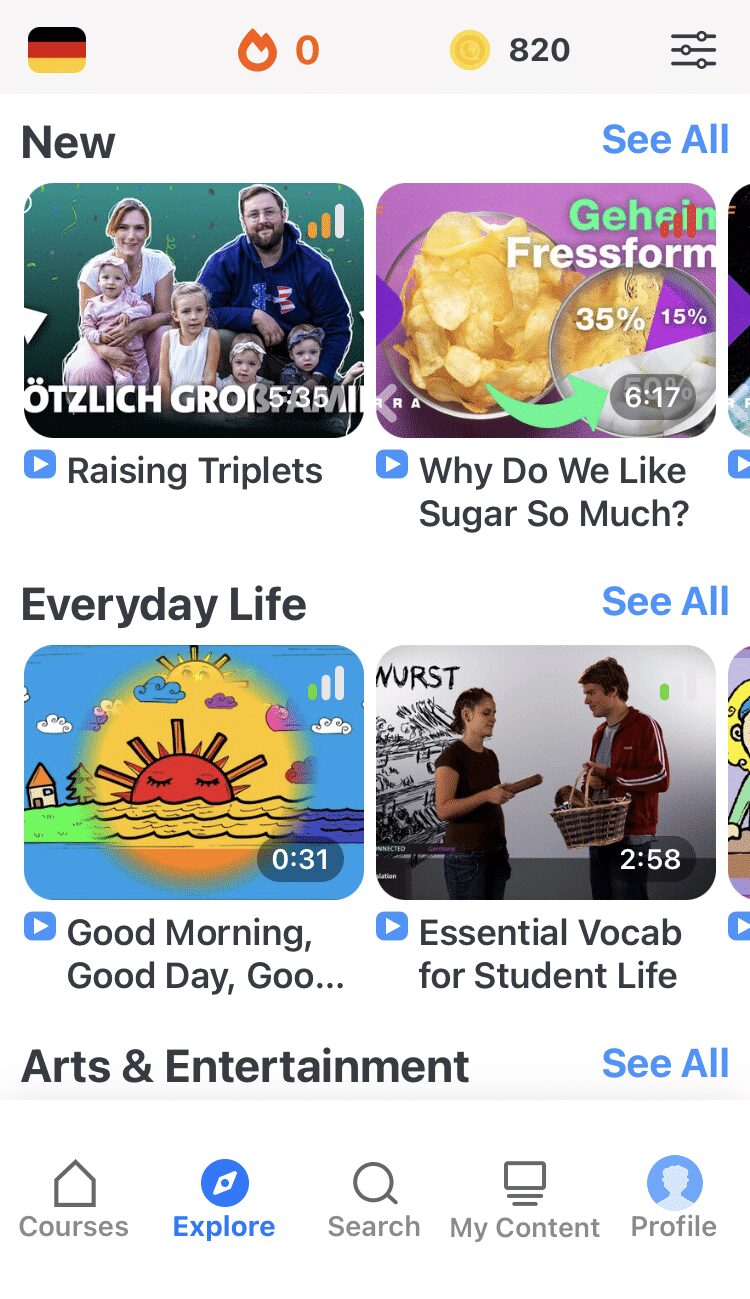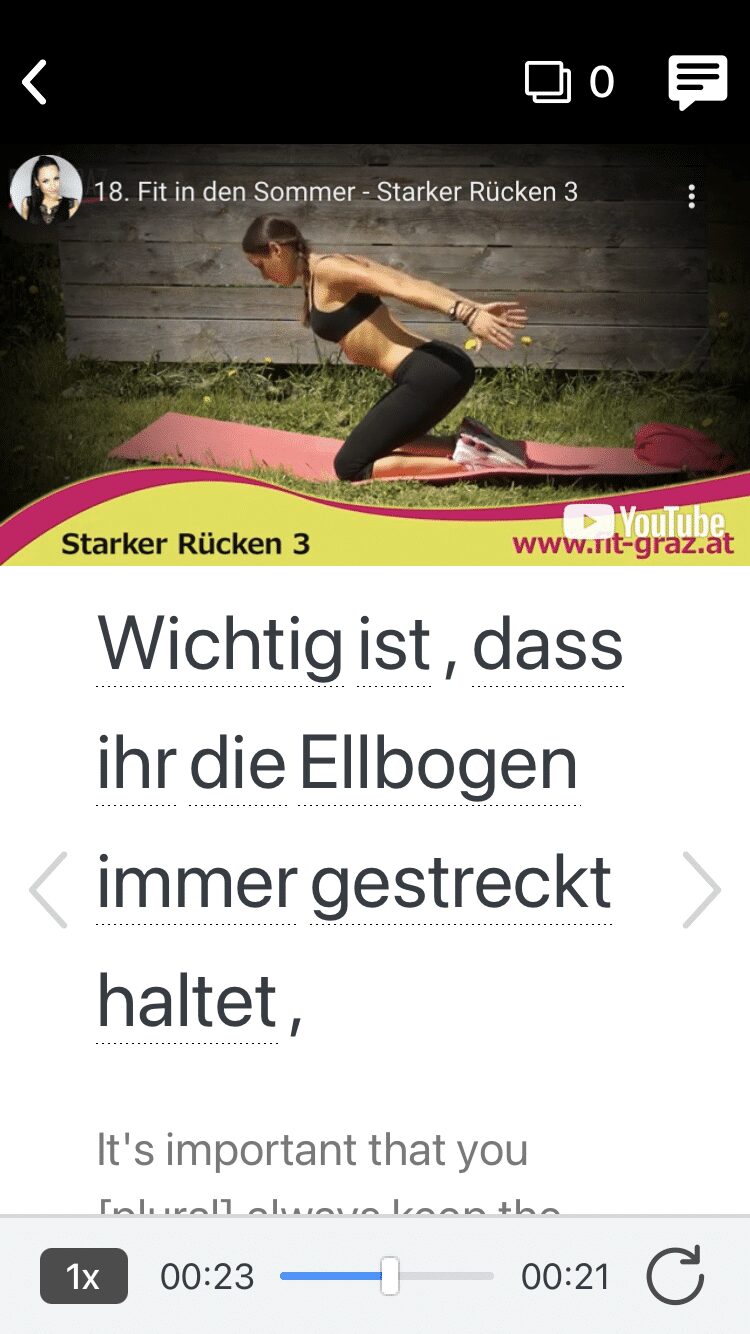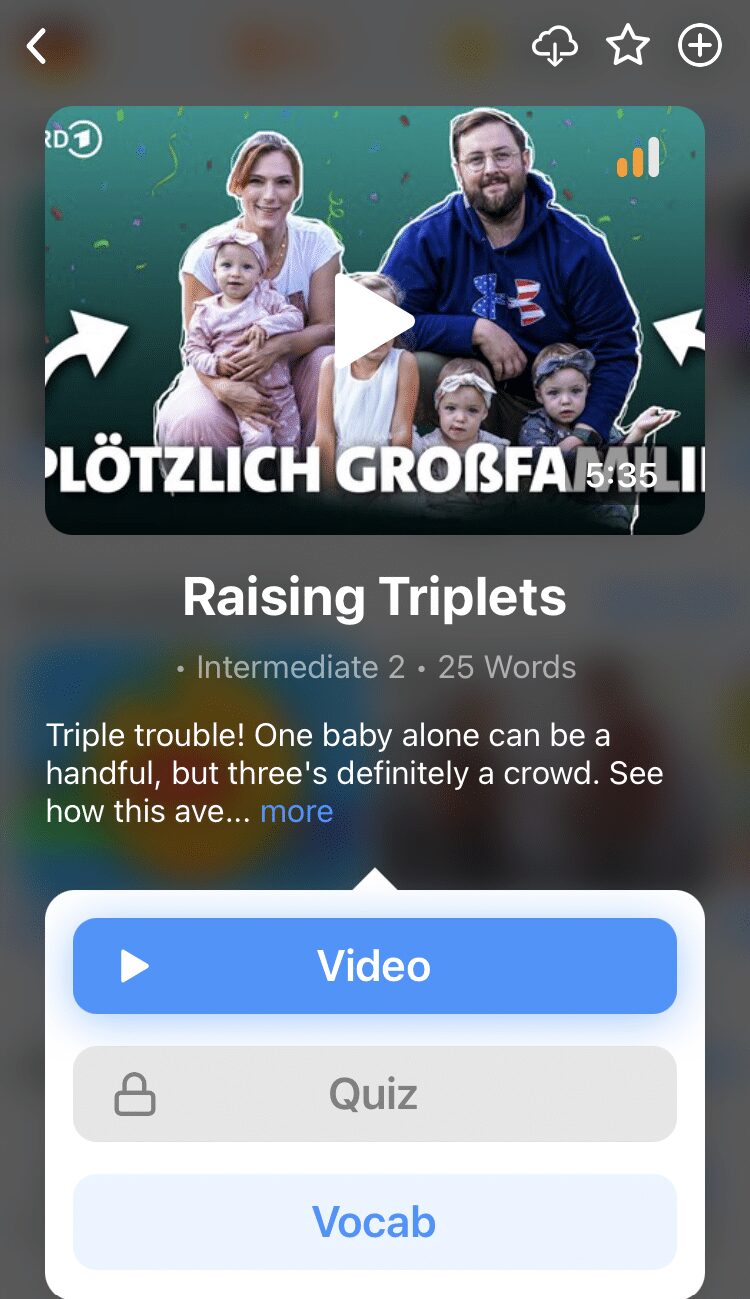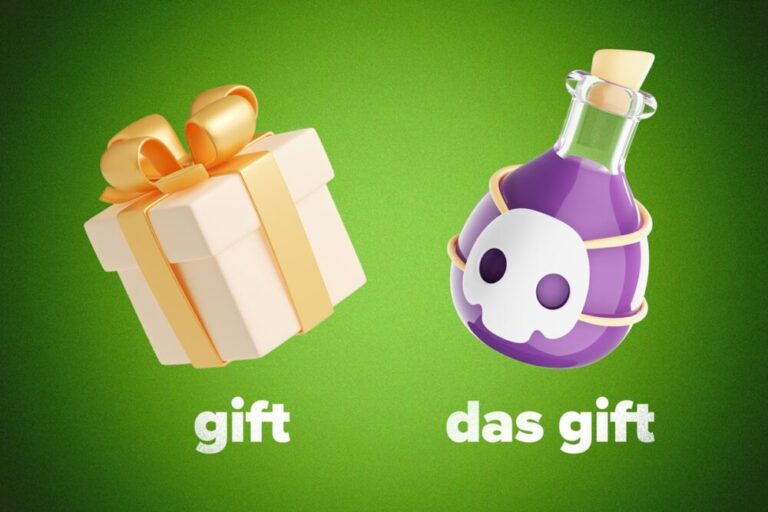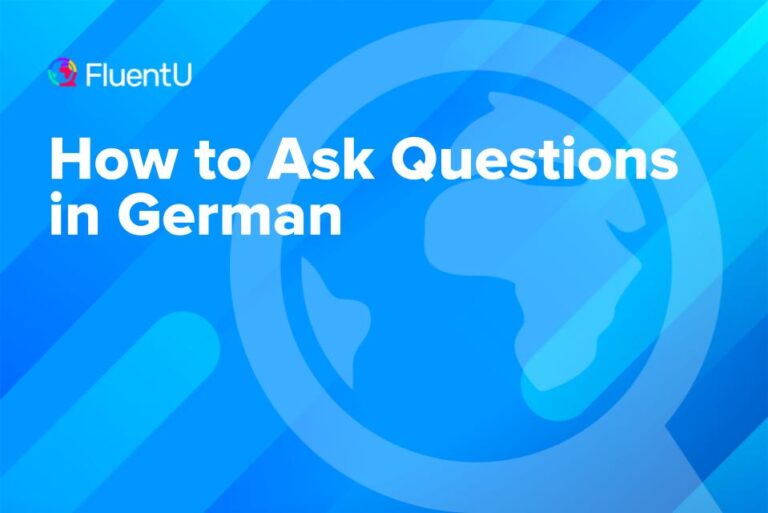German Vowels and How to Pronounce Them [with Audio]
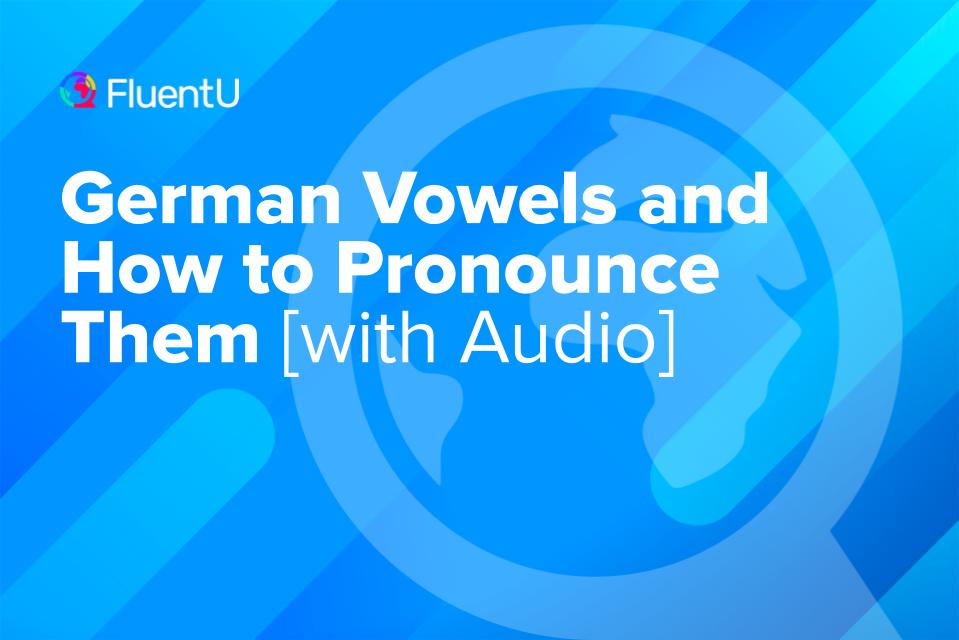
German vowels are one of the basic building blocks of the language. And while some will look familiar, there’s a feature in the German alphabet that doesn’t appear in English—umlauts!
Knowing your vowels won’t only help improve your speaking and pronunciation. Having all this vowel knowledge is really great for your writing and reading skills, too.
In this post, you’ll learn everything you need to know about German vowels, including umlauts and dipthongs, and the different sounds they make.
Download: This blog post is available as a convenient and portable PDF that you can take anywhere. Click here to get a copy. (Download)
German Vowels
Like English, the German language contains the basic vowels a, e, i, o and u, which can be long or short. It also has umlauts: ä, ö, ü and diphthongs (vowel pairs): ai, ei, eu, äu, ie, au.
We’ll go over each in more detail in the following sections, with examples and audio to help you perfect your pronunciation.
Basic German Vowels: a, e, i, o, u
The German alphabet contains the same basic vowels as English: a, e, i, o and u. As noted above, each of these vowels can be long or short. See the table below for their pronunciations and examples of each.
| Vowel | Sounds like | Examples |
|---|---|---|
| a (short) | the "u" in "cut" | kalt
— cold die Katze — cat alt — old |
| a (long) | the "a" in "harm | haben
— to have Hamburg — Hamburg der Vater — father |
| e (short) | the "e" in "set" | das Geld
— money die Ente — duck der Termin — appointment |
| e (long) | the "a" in "say" | regen
— to rain das Meer — sea / ocean der Februar — February |
| i (short) | the "i" in "bit" (but slightly more clipped) | mit
— with die Limo — lemonade bitte — please |
| i (long) | the double "e" in "feet" (but lift your tongue slightly higher) | der Igel
— hedgehog der Termin — appointment irisch — Irish |
| o (short) | the "o" in "hot" | der Gott
— God London — London blond — blond |
| o (long) | the "uar" in "quarter" or the "aw" sound in "call" | oder
— or rot — red der Monat — month |
| u (short) | the "u" in "bush" (shape your lips as if blowing out a candle) | rund
— round August — August der Funk — radio |
| u (long) | the double "o" in "moon" | anrufen
— to call / to phone die Blume — flowers der Uhrenturm — clock tower |
German Umlauts: ä, ö, ü
You have no doubt come across those curious-looking German vowels with the two dots hanging above them. They’re called umlauts and appear quite often throughout the German language.
Like with the basic vowels, they can be long or short.
| Umlaut | Sounds like | Examples |
|---|---|---|
| ä (short) | the "e" in "get" | fährt — drives / goes |
| ä (long) | the "a" in "day" | der Käse — cheese |
| ö (short) | a bit like the "e" in "her" | die Öffnung — opening |
| ö (long) | similar to the "u" sound in "burn" | böse — evil |
| ü (short) | a bit like the "ew" in "pew" | das Stück — piece |
| ü (long) | same as above but for longer | die Tür — door |
Here are some pronunciation tips for the trickier German umlauts.
- For the long ä: Try saying “aaah” as you would at the doctor’s, and imagine your tongue is being pressed down with the doctor’s tongue depressor.
- For the long ö: Keep your lips round and tense for this sound; they should open to create a hole about the size of an olive.
- For the short ö: It’s the exact same sound as the long ö except your lips don’t have to be quite so tense, and it’s not voiced for as long.
- For the long and short ü: Pretend you’re playing the flute and retract your lower lip—your lips can be slightly more relaxed when voicing the short vowel.
Diphthongs: ai, ei, eu, äu, ie, au
Now that we know everything about solo vowels, let’s see what happens when we put them together. Usually, vowels pair together to make certain sounds. When this occurs, the pair of vowels is known as a “diphthong.”
| Dipthong | Sounds like | Examples |
|---|---|---|
| ai / ei | both sound like the word "eye" | das Ei
— egg Mai — May |
| eu / äu | both sound like the "o" in "toy" | die Häuser
— houses neu — new |
| ie | the "e" in "we" | die — the |
| au | the "ow" sound | blau — blue |
Be careful not to confuse au with äu! That umlaut makes all the difference.
You can get more listening and speaking practice on FluentU, which includes pronunciation videos about how to say German vowels.
FluentU takes authentic videos—like music videos, movie trailers, news and inspiring talks—and turns them into personalized language learning lessons.
You can try FluentU for free for 2 weeks. Check out the website or download the iOS app or Android app.
P.S. Click here to take advantage of our current sale! (Expires at the end of this month.)
Tips on Long and Short German Vowels
How can you tell whether the vowel—or vowels—in a word is long or short?
Sometimes, there’s no indication as to whether you’re faced with a long or short vowel—this is the stuff you gradually pick up as you work at your German conversation.
In addition to learning by listening and looking, there are some rules that will help you out with your vowels. Below are the most common.
If a word begins with a vowel followed by an h, then it has a long vowel sound.
Some examples include:
ahnen — to guess / suspect
die Ohren — ears
In the words above, the long vowel is the one that appears in the first syllable.
Should a vowel precede multiple consonants, it will be short.
Here are a few examples:
Schmidt — German family name
der Hund — dog
Double vowels always pair up to create the effect of a long vowel.
You can see how this works in these words:
der Saal — hall
die Beere — berry
Now that you’re familiar with German vowels, diphthongs and umlauts, you’ll know the difference in pronunciation between über (over) and unter (under)—without having to ask anyone!
It’s small things like this that will help your confidence grow and allow you to connect with German speakers more naturally.
Download: This blog post is available as a convenient and portable PDF that you can take anywhere. Click here to get a copy. (Download)
And One More Thing...
Want to know the key to learning German effectively?
It's using the right content and tools, like FluentU has to offer! Browse hundreds of videos, take endless quizzes and master the German language faster than you've ever imagine!
Watching a fun video, but having trouble understanding it? FluentU brings native videos within reach with interactive subtitles.
You can tap on any word to look it up instantly. Every definition has examples that have been written to help you understand how the word is used. If you see an interesting word you don't know, you can add it to a vocabulary list.
And FluentU isn't just for watching videos. It's a complete platform for learning. It's designed to effectively teach you all the vocabulary from any video. Swipe left or right to see more examples of the word you're on.
The best part is that FluentU keeps track of the vocabulary that you're learning, and gives you extra practice with difficult words. It'll even remind you when it’s time to review what you’ve learned.
Start using the FluentU website on your computer or tablet or, better yet, download the FluentU app from the iTunes or Google Play store. Click here to take advantage of our current sale! (Expires at the end of this month.)

